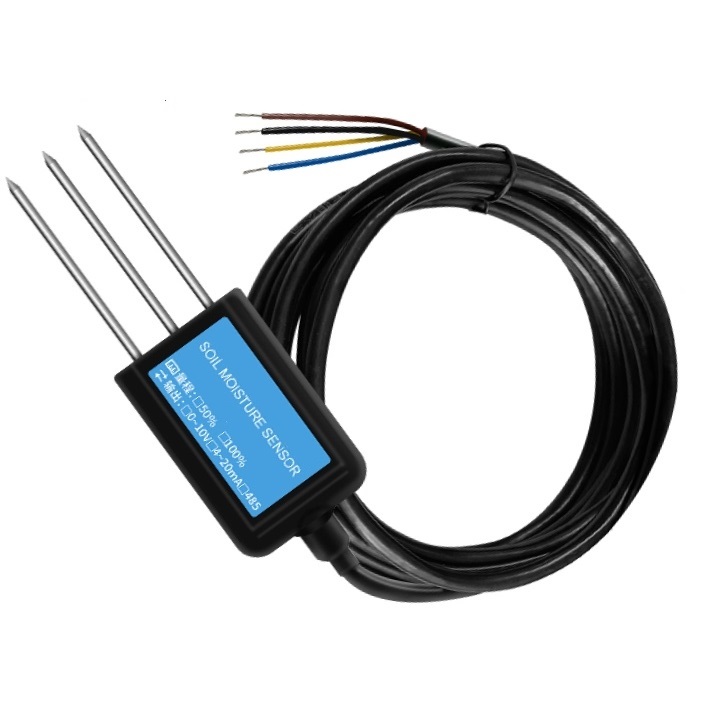As the saying goes, "you can't manage what you don't measure." This is especially true when it comes to soil moisture. Knowing the moisture content of your soil is crucial for proper plant growth and efficient irrigation practices. This is where a moisture probe comes in handy.

A moisture probe, also known as a soil moisture sensor, is a device that measures the volumetric water content in soil. This is done indirectly, by using a property of the soil such as electrical resistance, dielectric constant, or interaction with neutrons as a proxy for the moisture content. These relations between the property and soil moisture must be calibrated and may vary depending on environmental factors like soil type, temperature, or electric conductivity.
Moisture probes are incredibly useful for farmers and gardeners. Knowing the moisture levels of the soil is necessary to avoid under or overwatering plants. Overwatering can lead to root rot, and underwatering can cause plants to wilt and die. Moisture probes are also essential in irrigation scheduling. By measuring the soil moisture levels, farmers can plan their irrigation practices accordingly and save water, time, and money.
There are two main types of moisture probes: portable probes and fixed probes. Portable probes are handheld and can be used by farmers or gardeners to measure the soil moisture levels at various locations in their fields or gardens. These probes are useful for taking quick, on-the-go readings. Fixed probes, on the other hand, are embedded in the soil and continually measure the moisture content. These probes are more expensive and require installation, but they provide real-time data and are useful for long-term monitoring.
There are various brands and types of moisture probes available, each with its advantages and disadvantages. Some probes are more accurate than others, while others are more durable and long-lasting. Some probes are wireless and can transmit data to your computer or phone, while others require direct readings from the probe.
One of the essential things to consider when purchasing a moisture probe is the calibration process. The probes have to be calibrated to the specific soil type they will be used on, which can affect their accuracy. Some probes require frequent recalibration, while others are factory-calibrated and don't require much maintenance.
Moisture probes are also useful for remote sensing in hydrology and agriculture. Reflected microwave radiation is affected by the soil moisture and is used for remote sensing. This technology has revolutionized the agricultural industry by providing farmers with accurate and reliable data, allowing them to make informed decisions about their crops.
In summary, a moisture probe is a necessary tool for farmers and gardeners. Knowing the moisture content of your soil is essential for proper plant growth and irrigation management. There are various types and brands of moisture probes available, so it's essential to consider factors such as accuracy, durability, and calibration when purchasing one. Proper use of a moisture probe can help you save time, money, and water, as well as improve your crop yields.